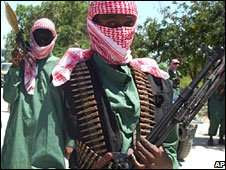Unlike his predecessor, President-elect Barack Obama has made it clear that his foreign policy will not be shaped by the “politics of fear,” but by “hope and change.” That, we recognize, is easily said than done. But we also understand that some words are, at times, mightier than the sword.
Take Somalia, for example. On his Website, Obama states that his Administration will develop “a coherent strategy for stabilizing Somalia,” a succinct statement that broadly addresses the incoherent tactics employed by the Bush Administration, often to destabilize Somalia.
Gone, is the “War on Terror” mantra that defined the Bush Administration’s policy toward Somalia. In, is a deliberated and nuanced view of the intricacies of the Somali conflict.
That’s crucial. Without compromising the national security of the United States, the Obama Administration can deploy of the “tough diplomacy” that he often promised during the campaign, to help bring about change in Somalia.
To that end, We offer the following advice for the President-Elect:
-Ask your Africa Team to thoroughly understand the nature of the conflict in Somalia in an encompassing fashion, without isolating a particular group or faction, for that tends to haunt back.
-Immediately end the Ethiopian occupation. This will send a powerful signal to the Somalis, long humiliated by this aggression. It will also undercut the extremists’ sole argument.
-Launch a massive humanitarian effort to rehabilitate the millions of civilians affected by the conflict in and around Mogadishu.
-Declare your support for bringing human rights violators to justice.
-Recognize the role of religious leaders and traditional elders, among others, in the societal stratum of Somalia.
-In your “coherent strategy,” help devise a mechanism for national reconciliation, whilst de-incentivizing the warlord enterprise.
Amid the current financial turmoil, and the inherent nature of unimportance of Somalia for the United States, it maybe tempting to revert back to the old “Containment Policy.”
But we believe that the United States has a moral responsibility to help end Somalia’s saga, in part because the U.S. ignited the most recent conflict when it supported the notorious Mogadishu warlords.
And also in part because the mere election of Barack Obama, a man whose roots hail from nearby Kenya, was largely celebrated in the hopes that he remotely understands the region better, relative to other presidents.
Leaving Somalia to the current status quo may, in the long run, leave the U.S. with limited policy options.



